Pernille Ripp's Blog, page 65
November 28, 2015
The Best Gifts Are Books – Some Ideas for the YA Lovers
I do not think I have ever hidden the fact that I love books. Anyone who knows me (or my children) picks up on it rather quickly. So books as gifts is only a natural extension of my love for them. Finding the perfect book to give to someone is a bit of an obsession of mine. So this year I thought why not share some of those books that I will be giving to others. I am sure I am not the only one searching for that perfect book to give.
I thought I would do one large post with all of my ideas but realized that it would be much too large, so this is simply the first post. Here are my favorite picks for the YA lover in your life.

A great new series starts with An Ember in the Ashes by Sabaa Tahir. Love, action, destiny and a story that makes you want to read just one more page. I only have one copy in my classroom, it has a huge wait list.
From Amazon:
Laia is a slave. Elias is a soldier. Neither is free.
Under the Martial Empire, defiance is met with death. Those who do not vow their blood and bodies to the Emperor risk the execution of their loved ones and the destruction of all they hold dear.
It is in this brutal world, inspired by ancient Rome, that Laia lives with her grandparents and older brother. The family ekes out an existence in the Empire’s impoverished backstreets. They do not challenge the Empire. They’ve seen what happens to those who do.
But when Laia’s brother is arrested for treason, Laia is forced to make a decision. In exchange for help from rebels who promise to rescue her brother, she will risk her life to spy for them from within the Empire’s greatest military academy.
There, Laia meets Elias, the school’s finest soldier—and secretly, its most unwilling. Elias wants only to be free of the tyranny he’s being trained to enforce. He and Laia will soon realize that their destinies are intertwined—and that their choices will change the fate of the Empire itself.
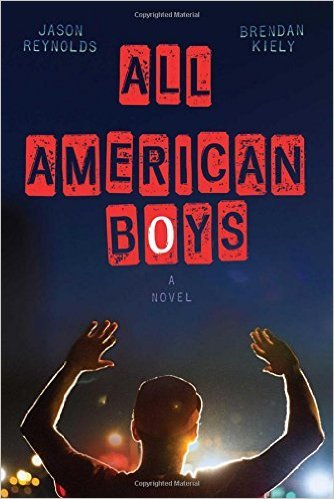
This is the book every person over the age of 12 should read in America. All American Boys by Brendan Kiely and Jason Reynolds is the book that we need to have some of the toughest conversations, but those conversations are the ones we need to have.
From Amazon:
A bag of chips. That’s all sixteen-year-old Rashad is looking for at the corner bodega. What he finds instead is a fist-happy cop, Paul Galluzzo, who mistakes Rashad for a shoplifter, mistakes Rashad’s pleadings that he’s stolen nothing for belligerence, mistakes Rashad’s resistance to leave the bodega as resisting arrest, mistakes Rashad’s every flinch at every punch the cop throws as further resistance and refusal to STAY STILL as ordered. But how can you stay still when someone is pounding your face into the concrete pavement?
But there were witnesses: Quinn Collins—a varsity basketball player and Rashad’s classmate who has been raised by Paul since his own father died in Afghanistan—and a video camera. Soon the beating is all over the news and Paul is getting threatened with accusations of prejudice and racial brutality. Quinn refuses to believe that the man who has basically been his savior could possibly be guilty. But then Rashad is absent. And absent again. And again. And the basketball team—half of whom are Rashad’s best friends—start to take sides. As does the school. And the town. Simmering tensions threaten to explode as Rashad and Quinn are forced to face decisions and consequences they had never considered before.
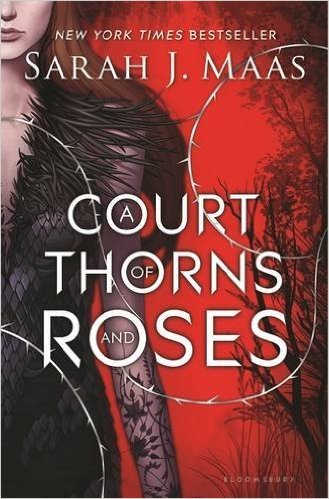
Another first book in a new series, A Court of Thorns and Roses by Sarah J. Maas kept me up way too late needing to read just one more page. It has all the ingredients needed for a great fantasy YA.
From Amazon:
When nineteen-year-old huntress Feyre kills a wolf in the woods, a beast-like creature arrives to demand retribution for it. Dragged to a treacherous magical land she only knows about from legends, Feyre discovers that her captor is not an animal, but Tamlin–one of the lethal, immortal faeries who once ruled their world.
As she dwells on his estate, her feelings for Tamlin transform from icy hostility into a fiery passion that burns through every lie and warning she’s been told about the beautiful, dangerous world of the Fae. But an ancient, wicked shadow over the faerie lands is growing, and Feyre must find a way to stop it . . . or doom Tamlin–and his world–forever.

Challenger Deep by Neal Shusterman is for the serious reader that has patience to stick with a deep book. For those that do, they will find an incredible story that will haunt their thoughts many days after the last page was read.
From Amazon:
Caden Bosch is on a ship that’s headed for the deepest point on Earth: Challenger Deep, the southern part of the Marianas Trench.
Caden Bosch is a brilliant high school student whose friends are starting to notice his odd behavior.
Caden Bosch is designated the ship’s artist in residence to document the journey with images.
Caden Bosch pretends to join the school track team but spends his days walking for miles, absorbed by the thoughts in his head.
Caden Bosch is split between his allegiance to the captain and the allure of mutiny.
Caden Bosch is torn.
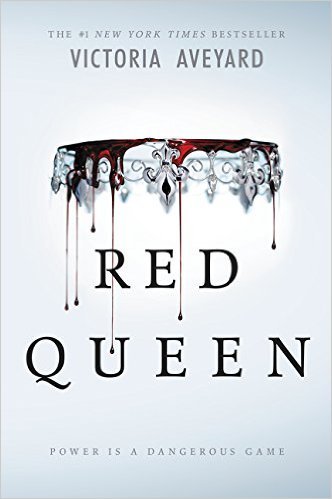
Red Queen by Victoria Aveyard reminded me of many books but it was in all the good ways. This book with its page turning action kept me reading long into the night and has kept my students reading as well. You know it is a great book when it is never to be found in your classroom library.
From Amazon:
Mare Barrow’s world is divided by blood–those with common, Red blood serve the Silver- blooded elite, who are gifted with superhuman abilities. Mare is a Red, scraping by as a thief in a poor, rural village, until a twist of fate throws her in front of the Silver court. Before the king, princes, and all the nobles, she discovers she has an ability of her own.
To cover up this impossibility, the king forces her to play the role of a lost Silver princess and betroths her to one of his own sons. As Mare is drawn further into the Silver world, she risks everything and uses her new position to help the Scarlet Guard–a growing Red rebellion–even as her heart tugs her in an impossible direction. One wrong move can lead to her death, but in the dangerous game she plays, the only certainty is betrayal.
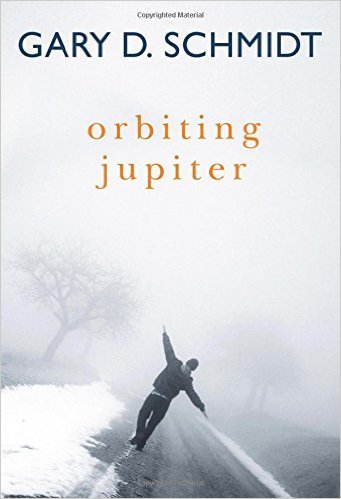
Orbiting Jupiter by Gary D. Schmidt is also a book that is never found in our library even though I have 3 copies of it. Every time a student finishes it they come and tell me that it is the best book. I believe it. Orbiting Jupiter is one to remember.
From Amazon:
The two-time Newbery Honor winner Gary D. Schmidt delivers the shattering story of Joseph, a father at thirteen, who has never seen his daughter, Jupiter. After spending time in a juvenile facility, he’s placed with a foster family on a farm in rural Maine. Here Joseph, damaged and withdrawn, meets twelve-year-old Jack, who narrates the account of the troubled, passionate teen who wants to find his baby at any cost. In this riveting novel, two boys discover the true meaning of family and the sacrifices it requires.

With the release of the final book in the Lunar Chronicles series, Marissa Meyer has secured her spot as one of my favorite authors. Winter is a masterful conclusion to a riveting series that even self-proclaimed sci fi haters love to read. That says a lot about the power of the series.
From Amazon:
Princess Winter is admired by the Lunar people for her grace and kindness, and despite the scars that mar her face, her beauty is said to be even more breathtaking than that of her stepmother, Queen Levana.
Winter despises her stepmother, and knows Levana won’t approve of her feelings for her childhood friend–the handsome palace guard, Jacin. But Winter isn’t as weak as Levana believes her to be and she’s been undermining her stepmother’s wishes for years. Together with the cyborg mechanic, Cinder, and her allies, Winter might even have the power to launch a revolution and win a war that’s been raging for far too long.
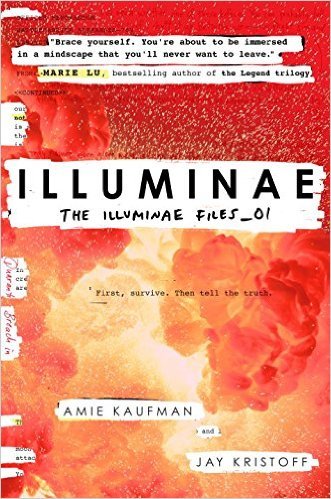
Confession: I have yet to read this book but just received an email from a student that had not read a book this year. Until she read Illuminae by Amie Kaufman and Jay Kristoff in one night. That is enough recommendation for me.
From Amazon:
This morning, Kady thought breaking up with Ezra was the hardest thing she’d have to do. This afternoon, her planet was invaded.
The year is 2575, and two rival megacorporations are at war over a planet that’s little more than a speck at the edge of the universe. Now with enemy fire raining down on them, Kady and Ezra—who are barely even talking to each other—are forced to evacuate with a hostile warship in hot pursuit.
But their problems are just getting started. A plague has broken out and is mutating with terrifying results; the fleet’s AI may actually be their enemy; and nobody in charge will say what’s really going on. As Kady hacks into a web of data to find the truth, it’s clear the only person who can help her is the ex-boyfriend she swore she’d never speak to again.
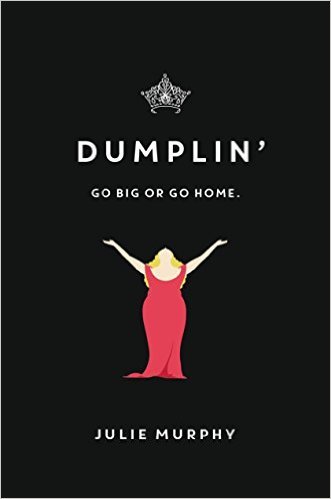
Dumplin by Julie Murphy filled a void I didn’t know I had in my classroom library; books that feature a self-proclaimed fat girls whose mission in life is not to become skinny. Hallelujah. Great book for anyone to read that needs a reminder that being ourselves is good enough and who wants a great story.
From Amazon:
Dubbed “Dumplin’” by her former beauty queen mom, Willowdean has always been at home in her own skin. Her thoughts on having the ultimate bikini body? Put a bikini on your body. With her all-American-beauty best friend, Ellen, by her side, things have always worked . . . until Will takes a job at Harpy’s, the local fast-food joint. There she meets Private School Bo, a hot former jock. Will isn’t surprised to find herself attracted to Bo. But she is surprised when he seems to like her back.
Instead of finding new heights of self-assurance in her relationship with Bo, Will starts to doubt herself. So she sets out to take back her confidence by doing the most horrifying thing she can imagine: entering the Miss Teen Blue Bonnet Pageant—along with several other unlikely candidates—to show the world that she deserves to be up there as much as any twiggy girl does. Along the way, she’ll shock the hell out of Clover City—and maybe herself most of all.

Walk on Earth A Stranger by Rae Carson took me by surprise, I did not think I would like this book. But with its riveting story of Lee, a girl with a secret, trying to make it to the California gold rush I had to see if she would make it. I was happy to see that this is part of a trilogy.
From Amazon:
Lee Westfall has a secret. She can sense the presence of gold in the world around her. Veins deep beneath the earth, pebbles in the river, nuggets dug up from the forest floor. The buzz of gold means warmth and life and home—until everything is ripped away by a man who wants to control her. Left with nothing, Lee disguises herself as a boy and takes to the trail across the country. Gold was discovered in California, and where else could such a magical girl find herself, find safety?
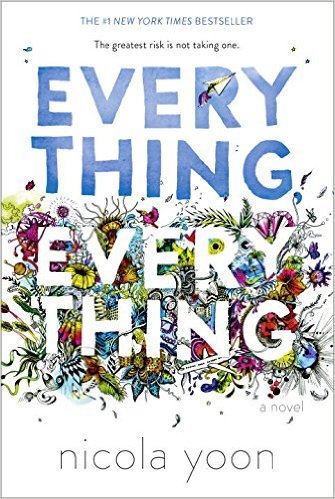
Everything Everything by Nicola Yoon was another book that took me by surorise and just how much I wanted to keep reading. I just book-talked this book to my students and have not seen it since.
From Amazon:
My disease is as rare as it is famous. Basically, I’m allergic to the world. I don’t leave my house, have not left my house in seventeen years. The only people I ever see are my mom and my nurse, Carla.
But then one day, a moving truck arrives next door. I look out my window, and I see him. He’s tall, lean and wearing all black—black T-shirt, black jeans, black sneakers, and a black knit cap that covers his hair completely. He catches me looking and stares at me. I stare right back. His name is Olly.
Maybe we can’t predict the future, but we can predict some things. For example, I am certainly going to fall in love with Olly. It’s almost certainly going to be a disaster.
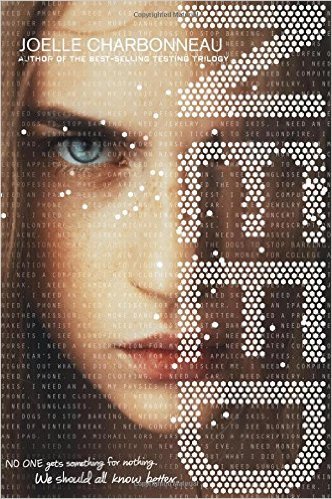
This list would not be complete without Need by Joelle Charbonneau. This masterful page turner is sure to make even your most reluctant readers read late into the night.
From Amazon:
Teenagers at Wisconsin’s Nottawa High School are drawn deeper into a social networking site that promises to grant their every need . . . regardless of the consequences. Soon the site turns sinister, with simple pranks escalating to malicious crimes. The body count rises.
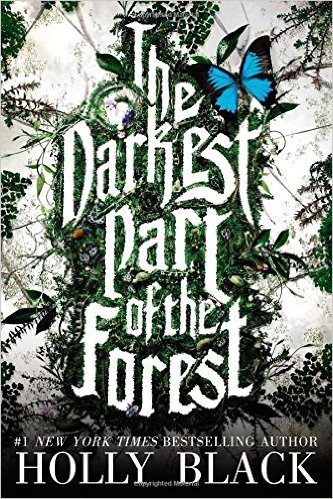
The Darkest Part of the Forest by Holly Black started my reading year off right with its tale of love, murder and the inexplicable that surrounds us.
From Amazon:
Hazel and her brother, Ben, live in Fairfold, where humans and the Folk exist side by side. Tourists drive in to see the lush wonders of Faerie and, most wonderful of all, the horned boy. But visitors fail to see the danger.
Since they were children, Hazel and Ben have been telling each other stories about the boy in the glass coffin, that he is a prince and they are valiant knights, pretending their prince would be different from the other faeries, the ones who made cruel bargains, lurked in the shadows of trees, and doomed tourists. But as Hazel grows up, she puts aside those stories. Hazel knows the horned boy will never wake.
Until one day, he does….
Which books did I miss? Which books are you buying for the YA lover in your life?
Stay tuned for the best picture books and middle grade novels to give this year!
Filed under: being a student, being me, books, Literacy, Reading


November 27, 2015
When We Fail A Child
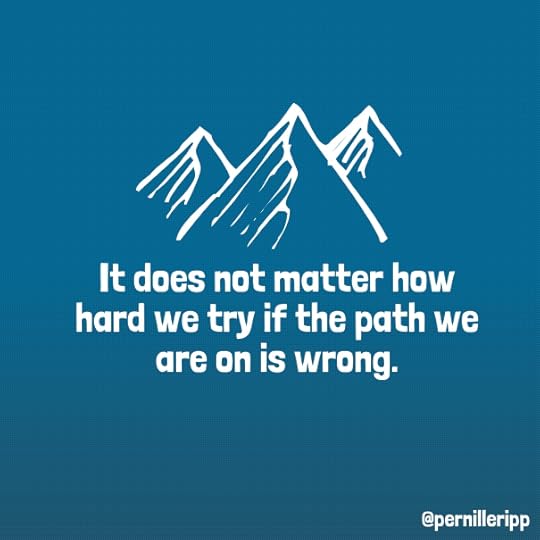
This originally appeared on The Guardian’s Education Blog
He was dragged into my classroom, clutched firmly by the arm as if he would try to escape. “I don’t know what you will do with him, but we have given up,” I was told. “He is done with school.” I extended my hand to the mother in front of me, told her my name, and welcomed her and her son into my class. It was the first day of school and my first introduction to Peter*.
For the next five minutes Peter stood in front of me while his mother told me all the things he needed to work on. She told me how she was ready to give up and hoped I could fix him – but she wasn’t holding her breath. With every word she spat out, his shoulders slumped further and his eyes stared more intently at the linoleum floor. I smiled, and did my teacher talk, soothing the ruffled feathers as best as I could. Then I thought to myself: “This year will be great. I will make a difference. Wait and see, he will love school again. I will fix him.”
I had every intention of keeping my promise, but I didn’t. I tried to connect with Peter. I tried to make him participate, to find his voice, to fall back in love with learning. But when he did not do his homework, or messed about in class, I followed my rules for punishment. He lost recess, pizza privileges and had to speak to the principal on many occasions. When he did not conform, I punished him. When he did not work, I gave him Fs. After all, that was what teachers did when a child didn’t follow their rules; they handed out the consequences whether they made sense or not. At the end of the year, when he was suspended on the very last day for yet another bad choice, I knew that I was not meant to be a teacher – or at least not the type of teacher that overrode her own common sense to conform to what society thought good teachers did.
I realised that the nine-year-old me would have hated everything about the classroom I had created
So that summer I found the courage to change the way I taught. I realised that the nine-year-old me would have hated everything about the classroom I had created. I would have been the child with the failing grades and the marks against them. I had to change. I had to create a classroom that I would want to be a student in, that I would want my own children to be a part of.
When we started the new year, I threw everything out. I got rid of my punishment system – no more lost recesses or phone calls home in the middle of class. Instead we would have a conversation and I would ask my students why they acted the way they did, rather than just assuming I knew. I got rid of almost all homework and made a deal with my students that if they gave me their best during school then they could have their after school time back. If they worked hard in class then we could learn what we needed to.
I limited grades, pushed back against classifying students by letters, and instead invited my class to reflect on their own learning, to take control of how they needed to grow and what they needed to do to get there. We discussed when assignments were done and we set goals. And slowly, my students started to ask why they were doing these things, if we could change what we were doing, and whether they could try something new. I said yes, instead of no, and then tried to be the very best teacher I could be.
I won’t lie, it was hard. It still is because every year, I am honoured to teach a new group of students who ask me why I teach this way. Every year I help students realise that they have a right to a voice within our classroom, that their voice matters and that school should be a place for them to thrive, not just survive.
But the system fights us every step of the way – school is made of boxes to define our students. My district is doing everything we can to break those boxes and tear down the notions of what it means to be a traditional school, and to truly make it about students again. We want to make school about curiosity, discovery and about each child, not just each teacher.
A few years ago, I saw Peter again. He had grown up and was no longer the kid with the slumped shoulders. I asked him how he was and he told me just fine. He had switched districts, but he liked his new school better. “I am sorry.” The words slipped out before I could catch them and he stared at me, confused. “I am sorry for not being a good teacher to you,” I said. He stared at me and then finally said, “No big deal, you tried.” And I thought to myself, yes, I did, but it does not matter how hard we try if the path we are on is wrong. And that is why I changed the way I teach. That is why I try to give the classroom back to my students and make school about the kids.
*Name changed to protect his identity.
If you like what you read here, consider reading my book Passionate Learners – How to Engage and Empower Your Students. Also, if you are wondering where I will be in the coming year or would like to have me speak, please see this page.
Filed under: aha moment, Be the change, being a teacher, being me, mistakes


November 26, 2015
A Much Needed Reminder

For the month of November, I have seen all of the practiced thankfulness. The posts on social media sharing what we are thankful for, the handwritten notes passed from person to person, the drawings and cards sent home from classrooms. November, it seems, is the month that reminds us just how good many of us have it. And for that, I am truly thankful.
Because we have it better than we think. At least, most of the time. We have it better than we realize. Many of us are surrounded by people who care about us. We have the things that give us a good life. We have jobs that even when they are tough center around the love of learning. We get to work with children. We are lucky, even when we forget it.
As I sit in my heated house, with the lights on, with food in the fridge, and new outfits for the kids, I cannot help but be humbled by all that we have. By all that we take for granted, and not just today, but every day. My kids are safe in our neighborhood, they have access to great schools, they are loved and protected by their family. They are given access to a life that many children around the world, and even here in my very own country, can only hope for.
So I hope this Thanksgiving will be a reminder to be more thankful. To see the good in the bad. To realize that even on our toughest days there is still love around us, there is still happiness. That sometimes the things we get so caught up in really should not be worth our time. That the things that upset us pales in comparison to what others go through.
So I give thanks to the little things. And strengthen my commitment to not remember that we are the fortunate ones. That we live privileged lives. Even on our bad days.
If you like what you read here, consider reading my book Passionate Learners – How to Engage and Empower Your Students. Also, if you are wondering where I will be in the coming year or would like to have me speak, please see this page.
Filed under: aha moment, being a teacher, being me


November 25, 2015
All The Things I Have Not Done
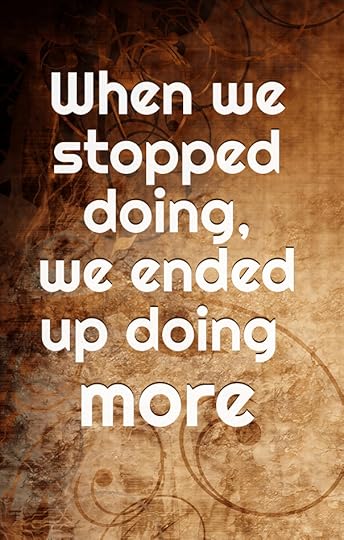
It is time for me to make a confession. It is time for me to come clean. Because it is easy to speak about all of the things we do in our 7th grade classroom, it is easy to share ideas, to give advice, to hopefully help others engage students more. And yet…some of those things that I love the most we are not even doing.
We haven’t started blogging yet. This monumental cornerstone of our classroom has not found its hold. It lurks on the horizon, taunting me, reminding me of its presence, and yet, we are not bloggers. We haven’t had many discussions of how to change education, how to share our voice with the world, how to make a change so that the schools we go to become better with us in them. We have not been geniuses or innovators. Nor have we Skyped much. We have not taken the system apart only to put it back together. And I am ok with that. For now.
Because while we have not done all of those things, we have slowed down instead. We have gotten to know each other, we have read picture books, we have book shopped for half a class. We have written stories for our eyes only, the classroom so quiet I barely dare move. We have talked about what it means to be a reader, a writer, a human being. We have stopped when we needed to instead of forged on. And the ease at which we now operate in our classroom is profound. The conversations that slowing down has allowed me to have with my students are irreplaceable.
So while we are not global students. While we are not innovators. While we are not out there changing the world, I know that it is only a matter of time. That my students will get to experience those things when they fit into our day. When we feel the need to take our voices further than our own four walls. I know it will happen, it just has not happened yet. And I am ok with that.
If you like what you read here, consider reading my book Passionate Learners – How to Engage and Empower Your Students. Also, if you are wondering where I will be in the coming year or would like to have me speak, please see this page.
Filed under: aha moment, being a student, being a teacher, being me, student choice, Student dreams


November 23, 2015
Not Just for Little Kids – What Picture Books Have Taught My Middle Schoolers
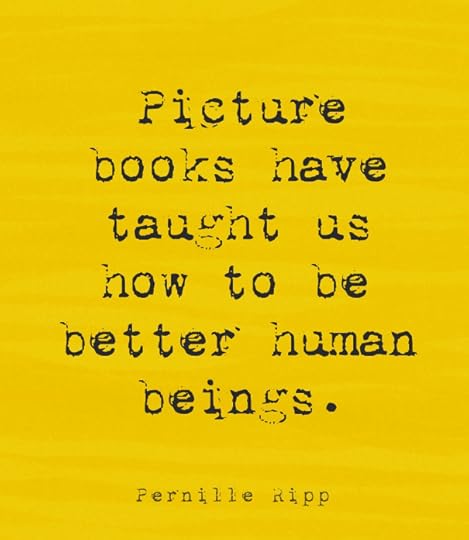
I never thought of leaving picture books behind. Of giving them away. Of hiding them away in a closet, only to be brought out when the need was immediate. To save them for a certain lesson or day. When I packed up my 5th grade classroom my beginning picture book collection came with me. No questions asked. And when I unpacked my boxes of books, out they came, proudly on display, ready to be read and shared and remembered. And since then the collection has only grown, only multiplied, and their hands keep reaching, and their eyes keep reading. You can say we are a picture book classroom.
Yet, it is not just the books themselves that have made us love them. It is not just the fact that they are on display, nor that they are oh so inviting to the students. You cannot just buy a few picture books and then wait for them to do their magic. The books are not enough, even if they a brilliant start. For the real change comes in how we use them. How they take center stage on the very first day and never leave. How they allow us to build our community, to strengthen our trust, to have incredible hard conversations, and also allow us to laugh.
You can say that picture books are the thread that bind us altogether and we would say that you are right. And yet, when I share this love some think I am crazy. That picture books are too easy for 7th grade and not at all what they need. That they need advanced texts that they can analyze and work with, that will test their skills of comprehension and push their thinking. And so to those that do not quite understand. To those that may doubt their place. To those that think that picture books are just for little kids, I offer the following.
Picture books taught my students that being a better person can sometimes happen too late to fix a situation. That every word matters and so does every action. That stories do not always have a happy ending and that we make a choice every day to be better human beings or not.
Picture books taught us that someone finding their courage to be their true self in a world that wants to stop them need our protection and friendship. That even though someone may choose differently than we would, does not make them less than. Does not make them somehow wrong. even if we don’t understand why. Even if we cannot relate.
Picture books taught us that sometimes innocent illustrations are not so innocent at all and carry far more damage than can ever be expected. Our job then is to notice and pause and discuss and then do something about it.
Picture books taught us to trust ourselves. To fight for our own beliefs and to have confidence in what we discover. That the world has room for more than one right answer and that we all deserve to be heard.
Picture books taught us that reading should move us. Whether to laugh, to think, to yell out in injustice. They taught is that we still have much to learn and much to investigate. That sometimes all we need is a short story for us to follow a path into a larger one. That the world is filled with stories waiting to be discovered if we just start to pay attention.
Picture books taught us that reading does not have to be hard to be worthwhile. But that we can handle the hard when it happens. That we do not have to struggle through complex texts but can instead access them in smaller pieces and that doesn’t make us dumb, or bad, or any other label we may have had before then.
So when people act surprised that I would ever hand a picture book to a 7th grader, I ask them to try it. To build a community that believes in the power of picture books and uses them for good. To create a community where all reading counts, not just the assigned texts, not just the grade level books. Where students are encouraged to read for fun, to read to learn, to read to challenge themselves and their opinions. Where picture books help us become better human beings, not because the teacher told us we had to work on it, but because within their pages we saw something to strive for.
So yeah, picture books may be for little kids as well. But for the big kids, for the ones I teach, they are an entirely new world that doesn’t judge, that doesn’t frustrate, that doesn’t make them hate reading. That helps them become what we all hope they do; better readers, better thinkers, better writers, but most of all, better human beings. All in the power of picture books.
PS: Want ideas for which picture books to have in your classroom, here you are!
If you like what you read here, consider reading my book Passionate Learners – How to Engage and Empower Your Students. Also, if you are wondering where I will be in the coming year or would like to have me speak, please see this page.
Filed under: being a teacher


November 22, 2015
The Worth of You

Lynda Mullaly Hunt made me cry yesterday. Right in the middle of a panel session on the community of the Global Read Aloud. I had held my tears back all throughout as the authors had shared what it means to have their book read and loved by so many children on a global scale. I had held my tears back as they had talked about the ways that their books had changed the lives of others, how children had found hope, courage, and determination through their pages. Yet when Lynda told me that the slide showing a globe was for me because I had changed the world. I cried. And then Lynda cried, and I sat there in awe because I never set out to make a difference, I simply wanted to read a book aloud to my students and have them share their thoughts.
So I write this post not to gloat in the Global Read Aloud glory. Nor to say that I am anything special, but more so to tell people that your ideas have worth. That your ideas may make a difference to someone else. That those ideas you carry inside need to be spoken because you will never know what type of difference they may make.
And yes, it is scary to speak a dream aloud. And yes, it is scary to let others in . And yes, it is scary to be proud of what you have created. But it is worth it. Even if your idea changes the course for one other person, or even if just changes yours, it will never change anything if you do not speak out loud. If you do not share.
I never set out to make a difference, I wish I could say I had. But it happened, if even just for my own students as they fell in love with a book year after year and wanted to make the world a better place. Because I dared to speak aloud. I dared to think that perhaps someone somewhere would see the beauty in this so simple idea. And so the Global Read Aloud will continue to make a difference for so many kids, for so many teachers, as we gather in this time of terrorism, uncertainty and a world determined to be dark at times. We need books to connect us because the world seems to be trying to tear us apart at times. We need books to remind us that we are more alike than different. We need books and experiences and emotions so that we can remember that we are humans first and that whatever difference we may have can be overcome.
I never set out to change the world, and I am not even sure that I have. But I had an idea that I dared speak aloud and now cannot imagine a world without it. Share yours; change the world.
Filed under: Be the change, being a teacher, being me, global read aloud, MIEExpert15


November 19, 2015
I Was Born A Reader
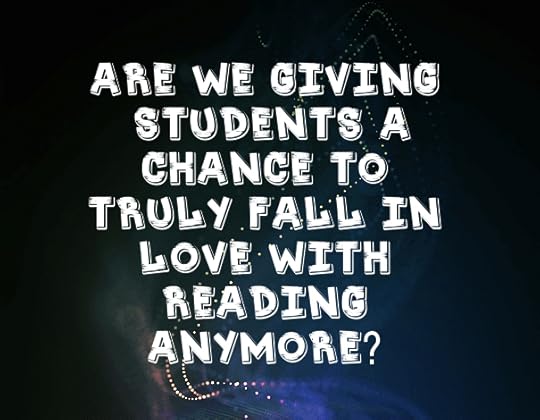
Some days I feel like I was born to read. To fall in love with stories. To think deeply about the books that I carry in my heart, to get so consumed by the tale of someone else’s life that there is nothing that can penetrate my wall of immersion. On other days, reading is the furthest thing from my mind as I watch my house fill up with dirty clothes, my children’s arms eagerly awaiting another hug, a song, some help. Reading moves further away when the to-do’s pile up, the stacks of paper start to scatter, and my brain cannot seem to slow down. That is when I am my most vulnerable as a reader. When the world is too busy and sitting down with a book seems to be too much of a luxury. I lose touch with the power of reading, but not for long, never for long.
So I continue to come back to books whenever I can. I get through the things that have to get done so my ears can hear my to-be-read pile calling. It is not hard for me to find book, it is hard for me to choose which one next. It is not hard for me to find a moment of quiet, where I don’t have to do anything but read, after all my kids go to bed early. My life has taught me that I am a reader, even if I am not reading. That I am a reader even when I abandon a book, struggle with its meaning,or have no idea what to read next. I am a reader because I have had so many amazing experiences with books that I cannot imagine my life without them.
Yet, how many of our students have that same experience? How many of the children we teach know in their core that they are readers? How many have experienced the freedom of choice in books that we have as adults? How many of them have experienced what it means to abandon a book simply because they wanted to? How many of them feel like finding time to read is an investment worth making because they know their soul will feel better?
It seems our classrooms are set up to cover curriculum, which in its simplest way makes sense, after all, we cannot be teachers if we do not teach. Yet, within that curriculum we need to create reading experiences that allow students to fall in love with reading. To read with wild abandonment because it is what they want to do, not just have to do.
We need to give them enough incredible experiences with books so that they can become readers at their core, and not just because their teacher told them so but because they know it will better their lives. We need to give them enough moments with books that they choose so that when their reading slows down, when they meet a text that does not entice them, they will not give up on reading but rather know that they are in a lull and that this too shall pass. That being a reader means that we don’t always read but we cannot imagine a life without it.
I was born a reader, or so it seems, because my mother never told me what book to read, my teachers never told me my level, and I was never ashamed to admit when I read slowly. The least I can do is offer my students the same thing.
If you like what you read here, consider reading my book Passionate Learners – How to Engage and Empower Your Students. Also, if you are wondering where I will be in the coming year or would like to have me speak, please see this page.
Filed under: being a teacher, being me, books, Literacy, student choice, Student dreams


November 16, 2015
Well Hello #NCTE15
For a few years I have sighed every November when it seems like every literacy genius that I follow have headed to NCTE and then shared all about it. For a few years I have thought that maybe I would go, but then when it comes to be time, there never seemed to be enough time. And so I haven’t. And I have been fine, but boy ,have I felt like I was missing out.
So thanks to the amazing Lynda Mullaly Hunt who thought that maybe we should propose a session on the Global Read Aloud. Thanks to all of my amazing Nerdy Book Club friends who told me that this was the best conference ever, thanks to my district for believing fervently in professional development, and thanks to Skype for believing in me and the GRA, this is the year I get to go. And I am counting down the days like it is a countdown to Christmas.
So where will I be?
On Friday, I get to be on a panel with Franki Sibberson, Ruth Ayres, Bill Bass, Ann Marie Corgill, Katie Muhtaris, Katherine Hale, Colby Sharp, and Kristin Ziemke. Yup, I am so honored to be presenting along these amazing minds on Keeping Reading Authentic and Student-Centered with Technology at 11 AM.
Later that day, I get to do my 3rd ever Ignite. And I am nervous; how can you not be when you only get 5 minutes to share what you are passionate about? But at 2:30, I am going to try.
Saturday at 8 AM, it is then to the session that started it all; The Global Read Aloud. I will be the one pinching herself when I get to sit with Lynda Mullaly Hunt, Sharon Draper, Kate Messner, Jenni Holm, and Katherine Applegate, as well as Michelle Kedzierksi as we talk about the project and more importantly the community that it creates.
Now for some reason none of these come up with my name in the app, which actually feels rather symbolic, after all, I cannot believe that I get to go. I cannot believe that I get to learn and be inspired finally at this conference.But trust me, they are happening, I will be there, and I will be grinning from ear to ear.
So if you see me, and I look pretty much like me, please say hi. Please tell me which book you are reading, tell me what you’re up to. I will be the one amazed at simply being there, surrounded by so much passion.
Filed under: being a teacher, being me, conferences, connect


November 15, 2015
Great Picture Books to Use for Notice and Note – All Signposts
Yesterday I posted my final picture book post for all of the signposts in the amazing book Notice and Note: Strategies for Close Reading by Kylene Beers and Robert Probst. It has truly been awesome finding picture books to go along with the strategies that can be used for many grade levels and through so many lenses. I thought it would be nice to gather all 6 posts here for easy reference and also to highlight a few rockstar picture books that can be used for more than one signposts, that way if you have a limited budget for book buying (don’t we all), you can start with these few and still cover a lot.
Here are the links to the original posts, make sure you check out the comments as even more picture book ideas were shared there.
And here are some of the best picture books that can be used with multiple signposts:
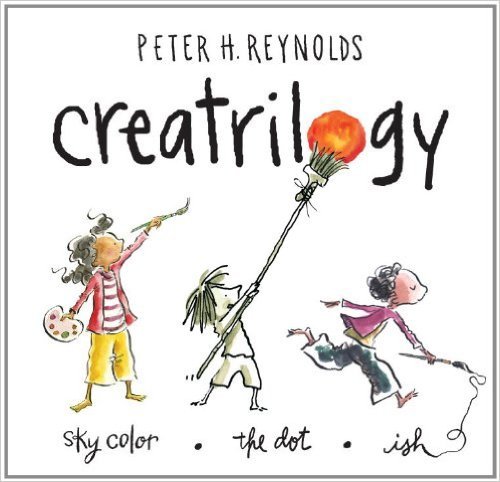
The Creatrilogy by Peter H. Reynolds featuring Ish, The Dot, and Sky Color will cover almost all of the signposts. All you have to do is add You and Me and The North Star and you can teach all 6 signposts using picture books that Peter H. Reynolds and Susan Verde has created. How is that for the power of amazing picture books.

You Are Not Small by Anna Kang showed up on several lists.
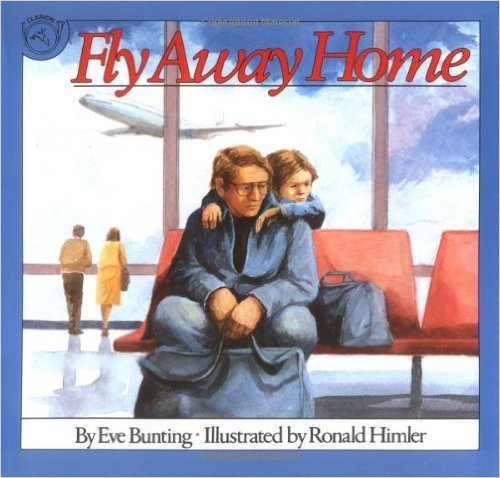
So did a lot of Eve Bunting’s books, Fly Away Home is one of my favorites.
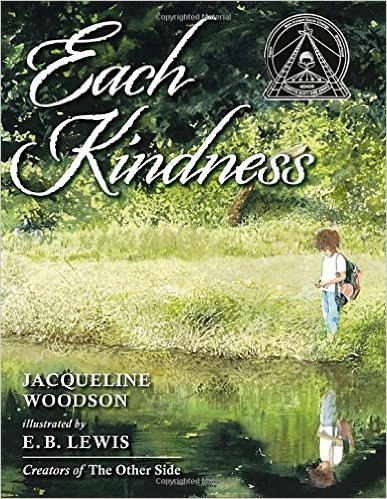
Each Kindness by Jacqueline Woodson breaks my heart every time I read it and was mentioned several times.
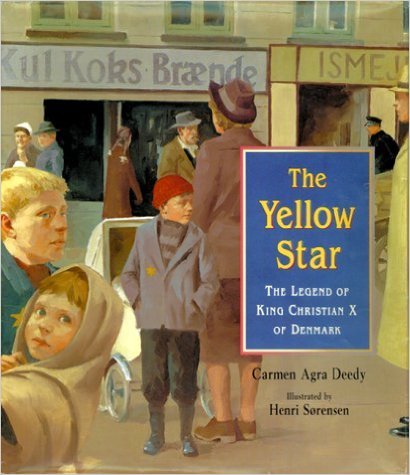
The Yellow Star by Carmen Agra Deedy also was mentioned several times.
Which books are you must have’s? Which books are the ones you can use for more than one signpost? Please share your ideas.
Filed under: books, Literacy, notice and note, Passion, picture books, Reading


November 14, 2015
Great Picture Books to Use For Memory Moments – Notice and Note
One of the main texts we use to guide our reading instruction is the amazing Notice and Note: Strategies for Close Reading by Kylene Beers and Robert Probst, and I have loved gathering all of these picture books to be used with this amazing book. This is therefore the last installment of these posts, Please keep sharing your ideas in the comments because I know many are looking for great picture books to use with these deeper reading strategies.
The first post was on Contrast & Contradictions, then followed Aha Moments,Tough Questions, Words of the Wiser, Again and Again, and now, finally, the last one for Memory Moments. Here I really tried to find picture books that have a true memory moment, which means a character stops the story to share a memory, these can be harder to find. Happy reading!

Both The Day the Crayons Quit and its follow up The Day the Crayons Came Home by Drew Daywalt and illustrated by Oliver Jeffers have great memory moments as the crayons tell Duncan how they were used and what they remember. Considering these are must have picture books for any classroom, since there are so many things you can teach with them, I am thrilled that both can be used for this strategy as well.

The retelling of the story of King Christian X in The Yellow Star by Carmen Agra Deedy and illustrated by Henri Sørensen is an example of a memory moment in the lesson that we are all to glean from it. The fact that the story is not true does not hinder its deeper meaning.
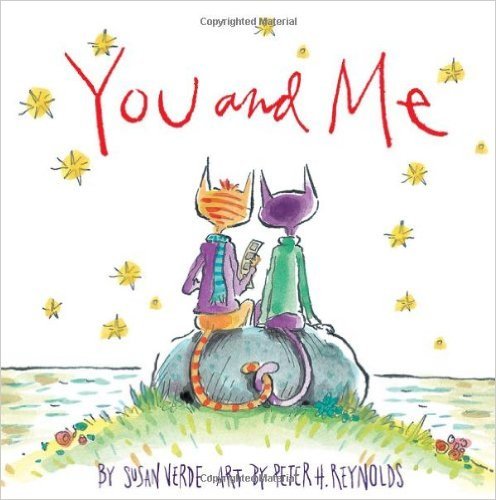
The books of Peter H. Reynolds has been featured in all of my signpost picture books, and it speaks to their incredible versatility. You and Me written by Susan Verdi and illustrated by Peter H. Reynolds is a memory moment from the start as the characters reminisce about what would have happened had their day not unfolded the way it did. A beautiful story of friendship and serendipity.

A beautiful memory moment exists in the pages of A Chair for My Mother by Vera B. Williams as we learn the story of the chair.
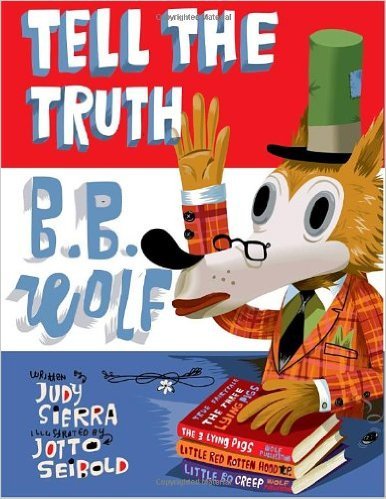
Memories abound as the Wolf shares the story of what really happened with the pigs in Tell the Truth B.B. Wolf by Judy Sierra and illustrated by Jotto Seirold.
As always, I turned to the awesome Notice and Note community on Facebook and asked them to share their favorites as well. Here they are.
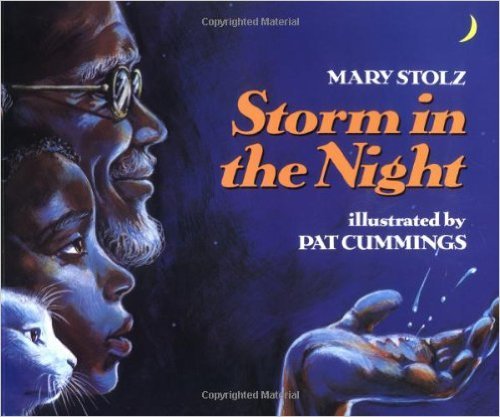
Storm in the Night by Mary Stolz and illustrated by Pat Cummings.

Tough Cookie by David Wiesniewski

Christmas Tapestry by Patricia Polacco.
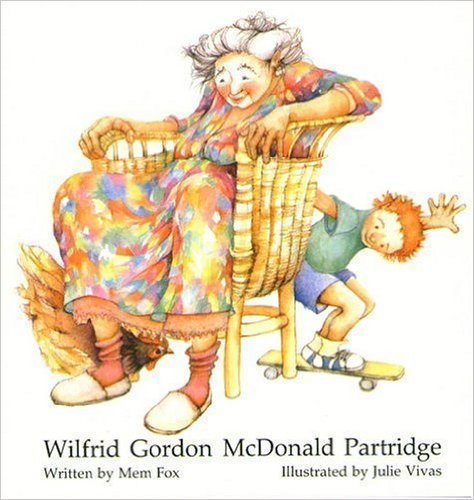
Wilfred Gordon McDonald Partridge by Mem Fox and illustrated by Julie Vivas
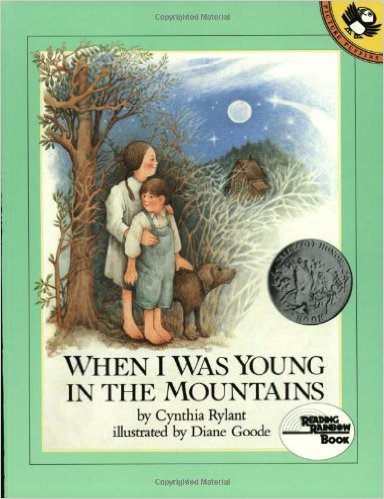
When I Was Young in the Mountains by Cynthia Rylant and illustrated by Diane Goode.
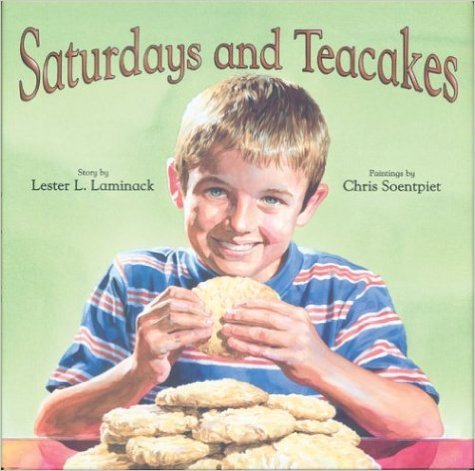
Saturday and Teacakes by Lester Laminack

A Christmas Memory by Truman Capote
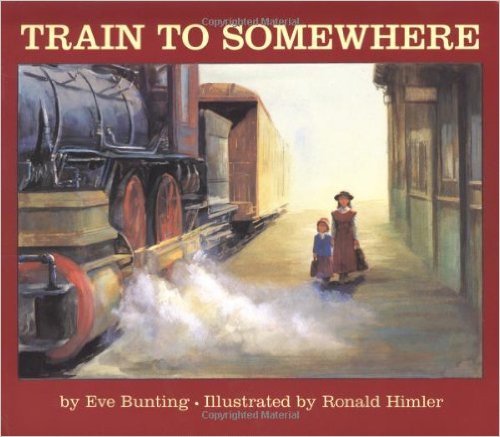
Train to Somewhere by Eve Bunting and illustrated by Ronald Himler
As always, please add your favorites for Memory Moments in the comments. Also, did you see the new Notice and Note for Nonfiction? I am so excited to read it.
Filed under: books, Literacy, notice and note, picture books





